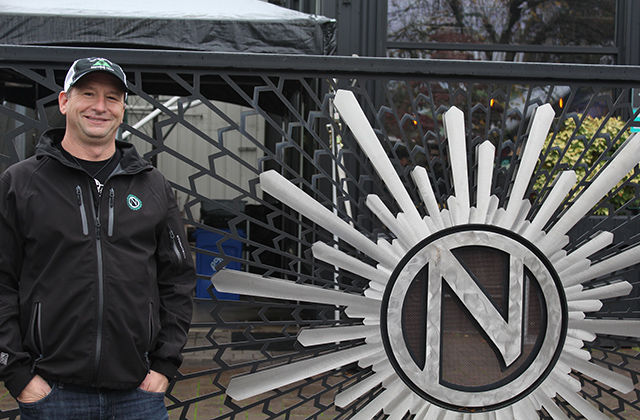
Jamie Floyd is an admitted beer nerd. Not only has he passionately loved making beer since he was 17 years old and a freshman at the University of Oregon in 1991, but he’s spent his life since gaining education on all things surrounding beer.
Passion has been a constant driver for Floyd. While he did graduate from UO, he knew in the back of his mind that he wanted to be an entrepreneur, but after college he found himself looking in the same areas as most other recent graduates. Not being satisfied with the career pool, he found himself working at Steelhead Brewery in Eugene, Oregon.
Floyd knew he wanted to brew, but he was doing whatever he could to put himself in position to showcase his knowledge and abilities. In the beginning he even went so far as to work two full time jobs at Steelhead — kitchen manager and assistant brewer — just to get involved.
“It’s pretty amazing back then,” said Floyd. “It was a completely different culture then.”
When he started in the brewery he knew very quickly it’s what he wanted to do and what he’d probably be doing for the foreseeable future. Over the years while at Steelhead, Floyd dreamed of opening his own brewery, but could never seem to figure out the best strategy to do so. “I went kind of deep immediately early on,” he explained. “Sort of the sensory side of things. I had a sensitive palate early on and took some Oregon State workshops, got into homebrew judging, recipe development, the historical nature of beer styles, a lot of social sides of beer pretty quickly … sort of looked at it from all levels and everything I need to start Ninkasi.”
The key to starting Ninkasi was Floyd meeting Nikos Ridge. The two had known each other for some time before ever discussing their future brewery. Nikos was from Eugene and was often home on holidays when he wasn’t attending school in New York.
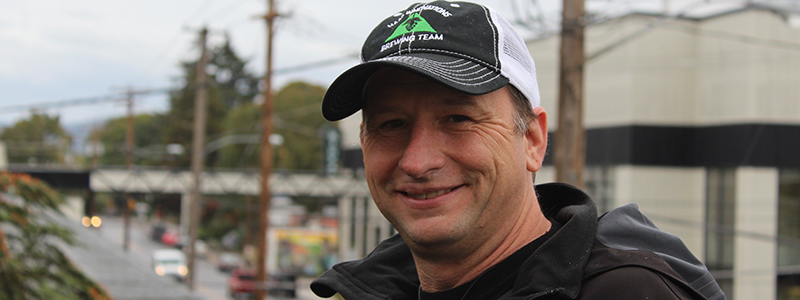
Eventually Ridge found himself tired of New York and his job on Wall Street. He wanted to move home to Eugene and have a change in career path. Strangely enough, the career Wall Street person found himself looking for a job at Steelhead as an assistant brewer. “It was an interesting time,” said Floyd. “I had made the decision at that time to leave Steelhead and start my own brewery, but nobody really knew that and I needed an assistant brewer. I was interviewing people and Nikos had never brewed a batch of beer. There were a couple of incredibly hungry homebrewers, so he wasn’t really eligible or qualified at the time, but it certainly put a little thing in the back of my head.”
One day after work, Floyd met Ridge and another friend at the tap room for pint. “They were asking sort of reasonable ‘what would you do if you ever started your own place,’” he said. “It gave me the opportunity to talk about what I was thinking and at the end of the conversation Nikos said if that was something I might want to do, he might be able to add a lot of help with his background.”
A few hours later Floyd gave Ridge a call to set up a meeting to discuss what would eventually become Ninkasi Brewing. At first the two were thinking the idea would become a brew pub sort of situation. There was a restaurateur in town looking for a place which gave them that inclination, but deep in Floyd’s mind, he knew he wanted to build a regional production brewery in Eugene.
“In my mind I don’t think Nikos realized that I was thinking we’d become a regional brewery … Eugene really deserves a brewery they have a relationship to, some pride,” he said. “The more we were working on our business plan the more we realized a restaurant just wasn’t going to work.”
The business owners were also staring the recession right in the face. They could see the issues and difficulties that were looming, but they decided to press forward. “Back then breweries had a stigma for not always being successful with about half of the brew pubs in Eugene over the course of the ‘90s and early 2000s went out of business,” Floyd said. “Ironically, 50 percent is better than average for a restaurant in the U.S. It was a pretty different time.”
Luckily as the realization of what Floyd and Ridge wanted to do with Ninkasi surfaced a location — oddly enough a former German brew pub — came into the equation. The family that owned the brew pub had never actually utilized the brewing equipment they had, which was a big win for the Ninkasi duo. “We had the opportunity to lease that equipment while we were trying to find our future building,” said Floyd. “We had the ability to go start making beer. And we got started.”
Ninkasi started by utilizing self distribution with Floyd handling the brewery and Ridge driving the deliveries. “Basically the two of us did everything from purchasing the ingredients to selling beer to folks for the first year and a half,” said Floyd. “It was a pretty intense time. The year that we spent building the brewery was super intense. I had a full time job basically bartending or managing a bar at night and then in the brewery by day. We wanted to come out — there were IPAs in every brew pub, but there weren’t a lot of IPAs in the public — so we saw an opportunity to make beers we thought had opportunity and were fortunate enough to ride the modern IPA craze.”
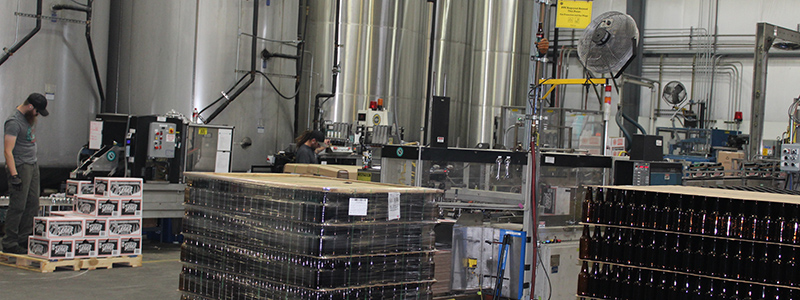
Within the first year Ninkasi brewed about 1,600 barrels, but quickly maxed at about 2,000 bbls. After that first year Floyd realized the business plan was concrete and there were opportunities to grow. From there Ninkasi set on a path to build four brewhouses within the next couple of years.
In 2006 Ninkasi leased a 15-bbl system from a brew pub in Massachusetts. From there they purchased a 20-bbl system. That system lasted one year, oddly selling that system to another brewery in Massachusetts — luckily making money back and paying for shipping — and then quickly upgrading to a 30-bbl system, which outlasted the others with a year and half. After the 30 bbl, Floyd and Ridge purchased the 50-bbl system Ninkasi brews on today.
“We basically built five breweries in 10 years,” said Floyd. “It was a pain in the ass I can tell you that much. It was really amazing to be able to grow at such a rapid rate. We were pretty lucky as well. We were able to do a pretty solid job of flavor matching and the overall beer got better with each new brewery.”
Throughout the process Floyd continued to learn more and more about the business and the brewery. The first brewhouse obtained didn’t have racking arms, which Floyd now said he can’t imagine a company selling a system without . “The racking arms were $250 extra if you wanted to use them as a brewery,” said Floyd.
Working for Steelhead, Floyd was already used to churning out a lot of beer day to day. However, he noted that Steelhead’s brewhouse was extremely well built. “It made it all pretty workable,” he said. “That’s something we’ve always carried with us. When people see the floor of our brewery there’s just not a lot of fluff there. It is what it is. There’s not a lot of extra space in there, but things aren’t just randomly spread out. Certainly with every brewhouse you learn different things about the manufacturer, about the way they differ in frameworks.”
The initial brewhouse that Floyd purchased from Massachusetts was a “brew pub system” made by a company that no longer was in business. This was an eye opener as they struggled to find replacement parts and insight into why certain aspects of the brewhouse did certain things. “There were definitely issues with it, but it was a fun brewery to work on,” said Floyd. “It got the job done and certainly did not decrease people’s perception of the beer.”
With the 30-bbl system Ninkasi went with another manufacturer that built the brewery for them. “We sold the 30-bbl brewery to Baxter Brewing in Maine, who had a lot of strong success with the business,” he said. “You certainly learn a ton. I’ve spent a lot of time working with the technical committee with the Brewers Association. I’ve been pretty nerdy on that sort of technological side of things. So it’s been fun to watch the advancements in brewing and technology over the course of the last 25 years.”
Floyd enjoys continuing to discover new problems and solutions. With each new brewhouse, new hurdles arise for the team to overcome. Ninkasi currently develops about 100,000 bbls per year with a capacity of about 150,000. “We built the infrastructure with a brewery that could be 300,000 bbls,” said Floyd. “We don’t ever see ourselves being that big, especially with the way the market is adjusting, but we’d certainly like to operate this brewery at 150,000 bbls which would make for a lot of efficiencies. It’s nice because we don’t really need to build more or elsewhere, which a lot of other breweries are doing.”
In regards to that growth structure, Floyd feels that Ninkasi was very lucky in the timing of when they launched, giving them that ability. He said he doesn’t believe that if they launched today they’d be able to have that same growth pattern and would potentially have to look more streamlined. When they launched in 2006 there were about 1,200 breweries nationwide, where there are now about 7,000 licenses with many in planning stages. “It’s going to be kind of difficult for brewers to make huge jumps unless they have pretty solid cash flow,” he said.
One area Floyd tries to help growing breweries is by explaining a lot of the business strategy that might be lost to new entrepreneurs. One example he shared was the story of a brewery looking to self distribute. They couldn’t decide to either purchase a truck or lease. They thought they should lease because they felt the maintenance would be there if anything happened to the truck because without the truck they’d fail their customers. However, Floyd said “well no, you’d just have an account open with a truck rental location. If your truck breaks down you just go pay $60 for a day to have a truck that day. Look outside the immediate problem. Is it that big of a deal? Leases like that are very expensive, which I know from leasing forklifts. In that similar vein, it’s a hard asset and you want to go for hard assets.
“I think when people are looking at growth rates it’s that leverage piece. How much have you already leveraged, do you have leverage to go out and get funding? As breweries grow, every time they make that growth spurt, they’re in a good cash flow situation. What are your new sets of restraints? It gets a lot harder depending on how you position yourself in your own asset to debt management. It’s pretty easy to hit the grow button, but when you finally transition into stability that’s a pretty difficult thing if you’re not prepared. Most times if you’re going to hit that stability piece you slow down in your growth rate, so you have new problems.”
Floyd said it’s important for brewers to understand a realistic expectation of what they can do and the best way to operate a growth strategy. “Are you selling most the beer onsite, are you trying to be part of a retail chain? That’s a really demanding place to be that has a lot of skill sets,” he said. “It’s something you have to mature and grow into. It’s not something you just get because you won a medal at the GABF or because people think your beer is rad and tell you so all the time.
“I think it’s a really interesting time and I think the true assessment is, what’s the true goal of the brewery, what do they want. It’s really easy to hear from a wholesaler that they can do a lot for you in a new segment or market. But most people aren’t seeing the same degree of success that’s being offered in the front side. Unless you’re within a few hundred miles of the brewery, it’s probably hard to bet on huge volume growth as part of your margin because you open 30 states.”
Floyd isn’t saying that to burst any bubbles, but he’s seen the difficulties to come out successful on the other side. He believes there’s a lot of a room for a company’s hopes and dreams, but you have to be prepared for what that will mean to your business. “When you go from 20 to 40 or 50 employees your culture changes, and you have to be ready for that piece because it’s different,” he explained. “We’re right around 100 employees. Nikos and I can still have relationships with everybody. When you do those deep studies, when you get above 150 people, the tribe gets too big to have that personal connection. So you have to be prepared for that piece of growth too, because keeping your employees happy is paramount to selling the beer.”
Over the past 10 years Floyd has seen himself completely evolve within Ninkasi. While he developed the business plan with Ridge from a brewer position, he now sees himself more comfortable within the business side. “I’m very fortunate to have Nikos as the CEO and Nigel [Francisco] as the CFO who actually studied it,” he said. “I studied non-profit business and ran a few cooperatives. But certainly I’m definitely in a different mindset in terms of owning a business and being an entrepreneur as well as being a brewer. This has been who I am the whole time, and most people want to hear me say that I miss brewing every single day. I’ve been brewing since I was 17 and I’ve brewed thousands of batches of beer and I’m part of brewing all the time. The way that I think about beer is completely different as well. It’s hard to phrase it properly, but it’s a newer thing to think I’ve been doing this for 25 years and that’s actually a long time. It’s a piece of who I am and it has this weird piece to it.
“One of our core values is a separation between work and life, successful integration of work and life and that’s really a good chunk of it. It’s pretty cool, my life is pretty dedicated to beer in a lot of ways. It’s kind of interesting to look at my life and how it’s separated from beer, but it’s one of those whole things there’s days in my life where I’m dedicated to recipe development and sometimes it’s helping homebrewers with their recipe development, some days it’s meetings with our bankers and keeping them happy and other times, at the end of the month, we’ll have a legislative day. It’s a pretty amazing job and I get to do a lot of things that are very fulfilling.”

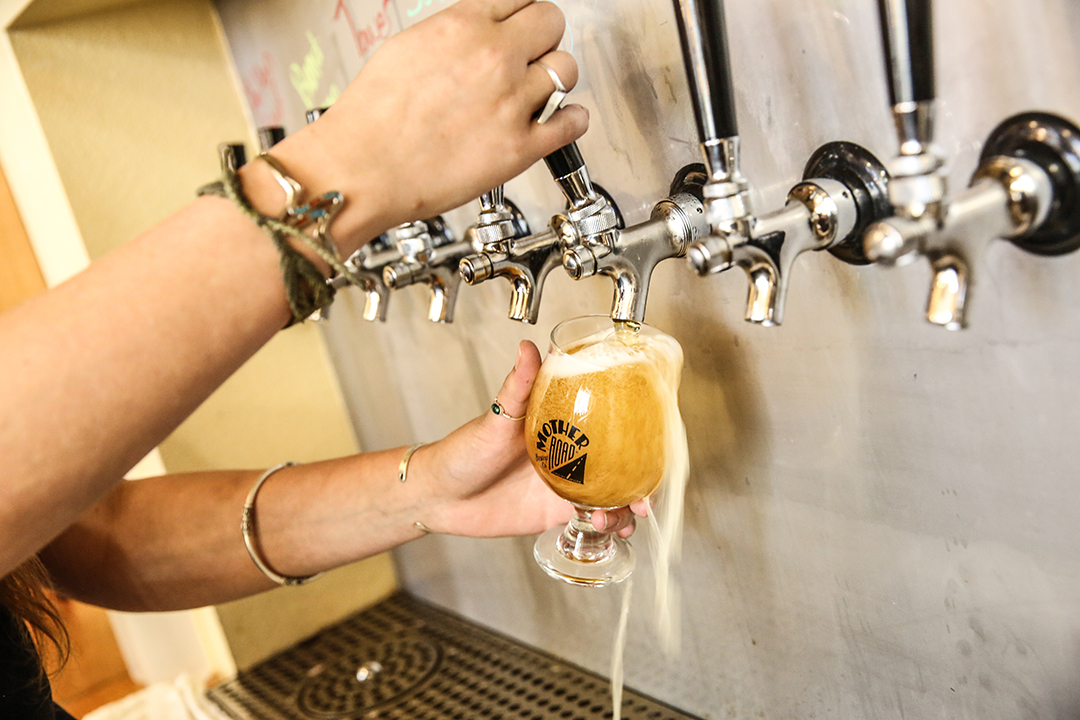
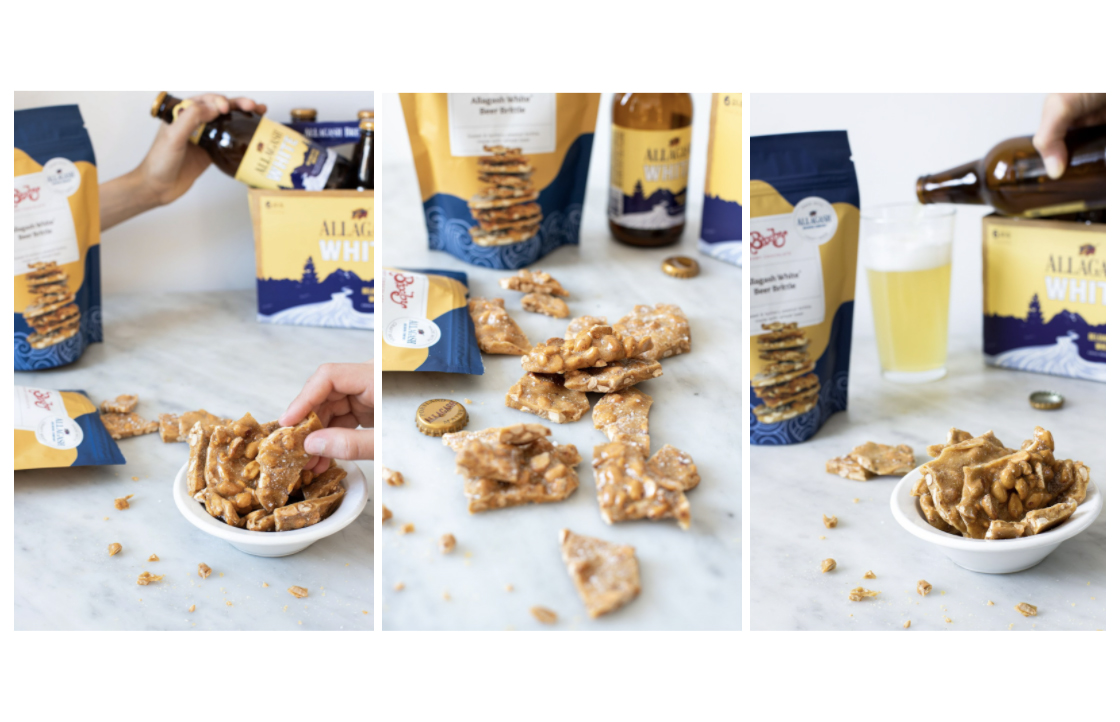
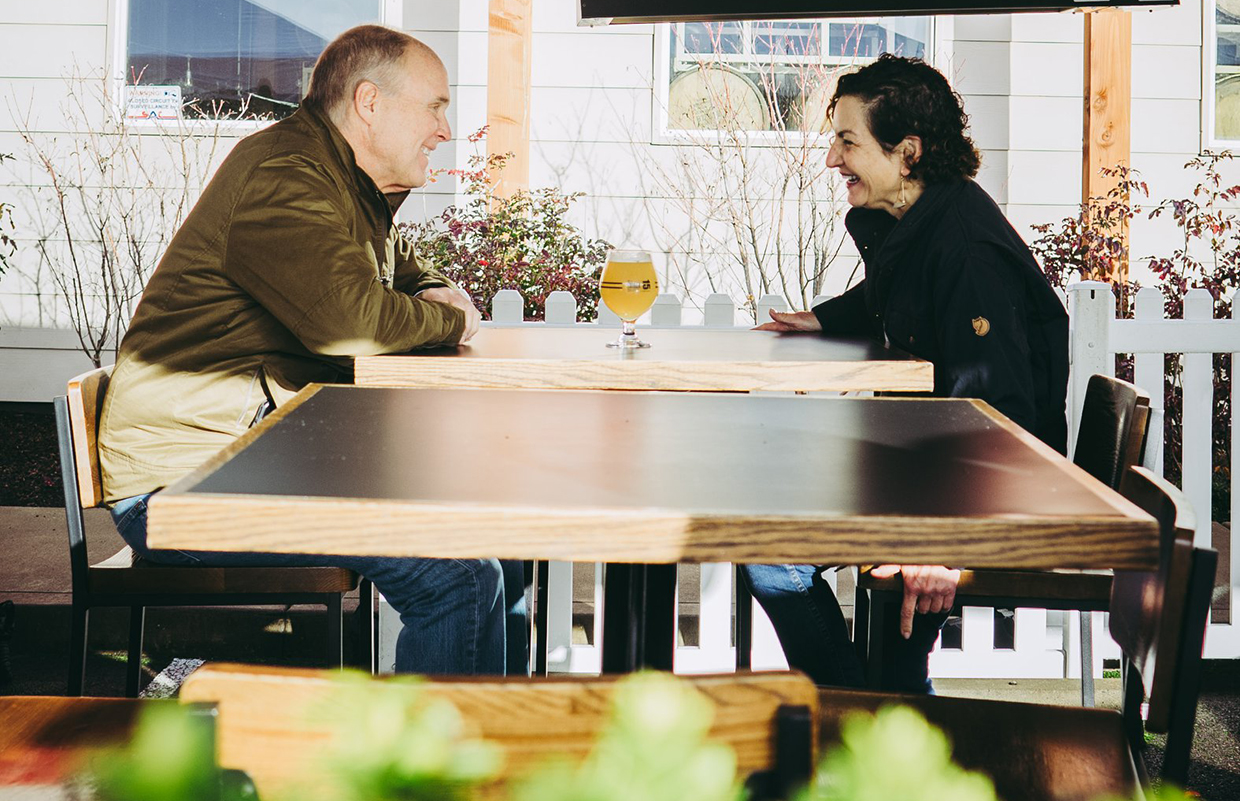
Be the first to comment